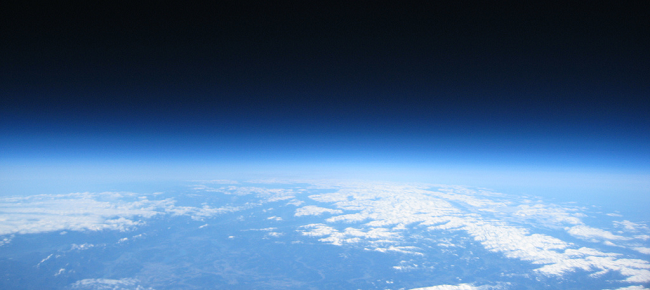Pupils of Walton School in Stafford have been some of the first to acquire their seeds from space, as part of the Royal Horticultural Society (RHS) / UK Space Agency co-organised Rocket Science project. The seeds were in space for six months with British astronaut Major Tim Peake, and were returned to Earth in March by the former commander of the space station, Scott Kelly. The aim of the project is to compare the seeds with ones that have not been in space, in order to study the horticultural possibilities available to astronauts.
Rocket seeds that will be grown as part of Royal Horticultural Society (RHS) and UK Space Agency educational initiative, Rocket Science, have returned from the International Space Station (ISS). Half a million UK pupils have taken part in the project. The 2kg of seeds were flown to the International Space Station (ISS) in September 2015, where they have been orbiting the Earth at a speed of 17,000mph.
Schoolchildren in Stedham, Chichester are deep in a space-biology programme launched by the Royal Horticultural Society (RHS) Campaign for School Gardening and the UK Space Agency (UKSA). According to the Chichester Observer, pupils at Stedham Primary School have signed up to be part of the Rocket Science project, which saw 2kg of rocket seeds were flown to the International Space Station (ISS) in September. Chichester-native Maj Tim Peake will be travelling to this orbital laboratory next month, and is keen for the human race to perfect plant-growth in space.
Around 400 secondary school pupils from South Wales will attend a one-off summer school lead by NASA astronaut Steve Swanson. The Mission Discovery programme will celebrate the sciences, and the renowned engineer will team up with Bishop Hedley RC High School in Merthyr Tydfil to let pupils spacewalk in an astronaut's shoes, according to Wales Online.
Space, the final frontier. These are the voyages of... well pupils from my school, I hope! Our pupils and perhaps ‘our own personal children’, as I call my sons, could possibly be travelling up to space in their latter years. It’s something that is becoming agility, core strength, stamina and dexterity. The mission activities are planned weekly at school and work well with year 5 pupils, as it is part of their science curriculum and the PE element forms part of their requirements for the term.
What can pupils get out of studying space travel? Teachers and organisers are teaming up in order to help students discover the cosmos, as well as giving insight into the working lives of astronauts. Kulvinder Johal, assistant headteacher at Northbury Primary School in Essex, recounts her experiences with Mission X over the last 18 months, and discusses how it has benefitted her pupils.

If you had told me two years ago that I would be off to Science Learning Centre in York to collect the Space Education Quality Mark - Gold standard, I would have said “What is that? Never heard of it.” Well I have now, and I am off to collect the award and also to present the space work we have undertaken, which has just been out of this world.

A community-driven platform for showcasing the latest innovations and voices in schools
Pioneer House
North Road
Ellesmere Port
CH65 1AD
United Kingdom